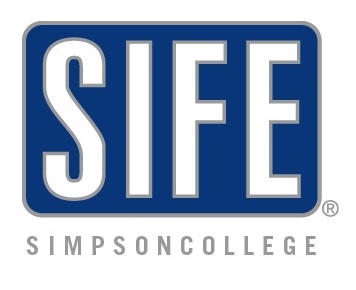What You Need to Know About Student Loans

October 14, 2010
At Simpson College, 98 percent of students receive aid of one kind or another. Many of these students are taking advantage of a portion of the over $110 billion in student loans given out to American college students each year. Although many students automatically qualified for these loans by filing the FAFSA, very few are well-schooled on the different policies of loan repayment. So in the following few paragraphs we are going to try to educate everyone on the topic of student loans and their repayment.
There are four major categories for student loans: federal student loans, parent loans, and private student loans (also called alternative student loans), the consolidated loan. The Federal Stafford Loan comes in two different types: subsidized and unsubsidized. While you are in school, the interest on subsidized loans is paid by the national government until the grace period for repayment ends, six months after the termination of at least half-time status. Meanwhile, the interest on unsubsidized loans accrues throughout your time in college and will be added to your loan upon reaching the end of your grace period. Some students are awarded both the unsubsidized and the subsidized types of loans. Students who don’t keep their loans straight could be in for a shock when they are expected to pay back their student loans and it comes out to be more than originally thought.
The federal government gives all borrowers six months after graduation to find a job and start making payments on their loans. Even if you still have not landed a job by this time, you are expected to start repaying our loans. These six months is called your grace period. When falling behind on repayment of loans, you enter delinquency. Falling behind by 270 days or more will cause an automatic default on the loans. If a student defaults, they are still responsible for repayment of the loans in one way or another. Federal and state income tax refunds and other federal or state payments will be lost, legal action may be taken and students may be charged extra fees from the collection costs. Information about your loans will be reported to national credit bureaus and damage your credit rating. In order for the government to get their money back, you may be subject to wage garnishment (where your employer is required to take part of your wage to pay your student loan) or your interest rate may increase if it is ruled that you have ample resources to repay your loans and have simply chosen not to. Private loans may have other consequence set forth in the loan terms.
Upon graduation, it is recommended that students contact their lender (all federal student loans, although issued by the government have a third-party lender who takes care of most of the paper work) and set up a plan for repayment. There are four typical repayment plans for federal student loans. The first repayment plan is standard repayment. This type of repayment allows students to repay the loan in equal monthly payments of at least $50 for up to 10 years. A graduated repayment plan allows students to begin with low monthly payments which increase gradually over 10 years until the loan is repaid. Income-sensitive repayment adjusts your monthly payment annually based on your total income and student loan debt and again allows us up to 10 years for repayment. There is also an extended repayment option for up to 25 years after borrowing a student loan. Only students who borrow more than $30,000 are eligible for extended repayment.
For students who borrow from many different sources, loan consolidation is also an option. Your monthly payment may be lowered by consolidating student loans with different interest rates, repayments plans, and vendors into a new, single loan. However, consolidation may end up being more costly, so be careful and do the math before choosing to consolidate.
Student loans are a big help in getting many of us through college, especially at a private, liberal arts institution like Simpson, but lack of knowledge on how student loans work can do you in if you make a mistake. Hopefully this article cleared up a few hazy ideas for students with loans to repay after college and everyone can be prepared for payments when they do start coming in, even if it’s still four years from now!
Students In Free Enterprise is an international organization that acts as a network between students, colleges, and business leaders. Every year, hundreds of SIFE teams around the world compete at regional, national, and international SIFE competitions where each team is judged on its impact on society. The Simpson College SIFE team, led by professors Marilyn Mueller and Tom Schmidt, has been very successful in its first nine years on campus, having won three regional titles.













